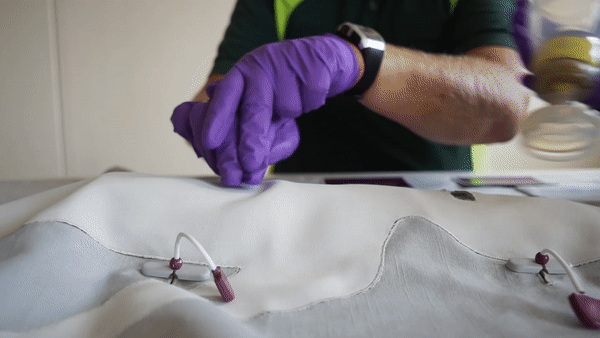Juno
Training tool for paramedics
̌
Juno
Juno is a training kit for pediatric emergencies. It engages paramedics to practice how to care for sick or injured children. While conventional training often requires expensive equipment and a dedicated time off duty, Juno is designed to be used for short training sessions during a normal work day.
Context
Student Project, 10 weeks
collaboration with Laerdal Medical and Umeå Ambulance Station
Role
Individual Project, Research & Concept Development
Challenge
Paramedics are the superheroes of our everyday lives. Even though their job is extremely stressful, they save lives on a daily basis, with an impressive capability to stay focused and do what is needed. Part of what helps them to handle these difficult situations is experience.
Calls about children only make up a small portion of emergency cases, so for many paramedics, providing care to children is out of the ordinary. When a child does need an ambulance, it is often a very stressful and emotional situation.
How might we help paramedics feel prepared for pediatric emergencies?
Approach
The project started with an exploration at the local ambulance station in Umeå. With a team of 12 students, we set out to learn about the work of the local paramedics and explore opportunities to design solutions that could support them. We each spent two days at the station, learning about equipment and routines and following on call-outs, before we identified areas to work with. During the ideation and concept phase, the paramedics allowed us to come back to evaluate our ideas and helped us with their feedback.
Outcome
Break time training at the station
We all learn by practicing, revising and repeating things. It is often easier to remember what we practice continuously over a longer period of time. This is why the idea behind Juno is to be a tool that is easily accessible and allows for short but frequent training sessions.
Juno can be hung on the wall of a duty-room, so it is a visible reminder that engages teams to practice. The blanket contains case cards that playfully lead the team through variable cases.
train and share experiences
Sitting down with the team to train creates an opportunity to talk about cases that others have experienced, understand their challenges and learn from each other.
While playing through the scenarios, the team can practice hands-on skills on the integrated modules. The face and chest modules can easily be packed flat when not in use.













